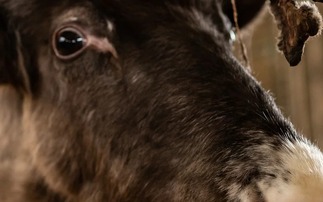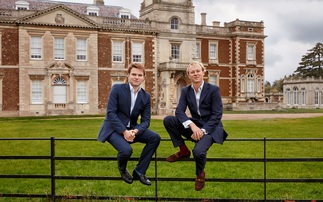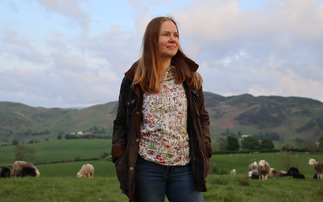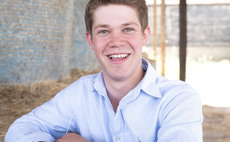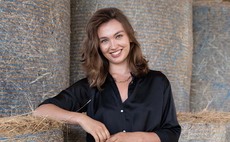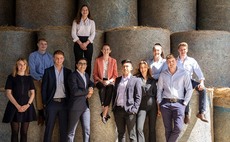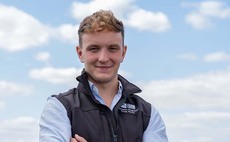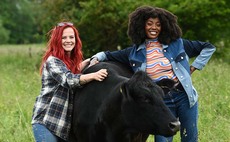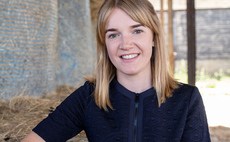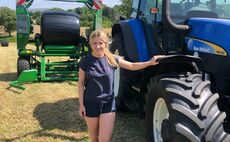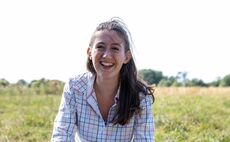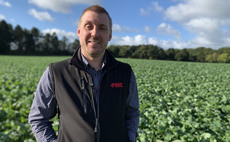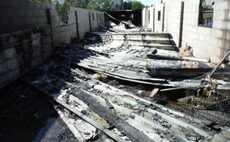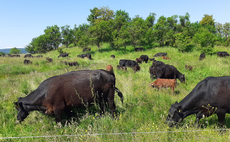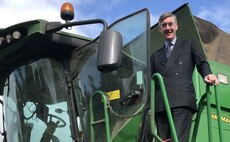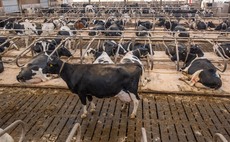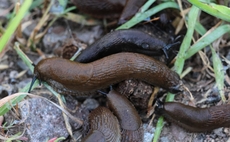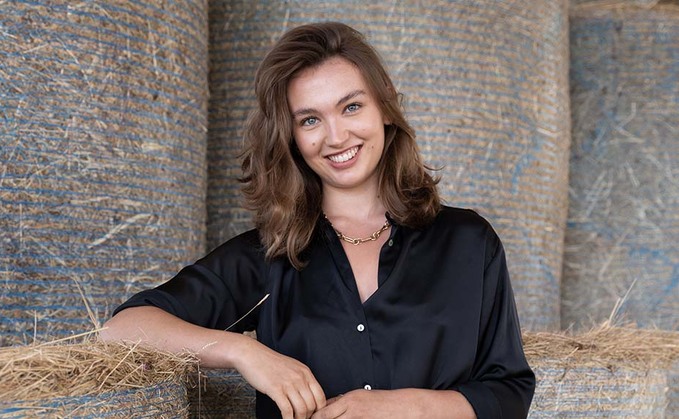
In a new series for Farmers Guardian, the 11 new recruits on the McDonald's Progressive Young Farmer (PYF) programme. Each month we follow one of the PYFs to see what they are doing.
If my younger self could see where I am today, that person would never have believed it. And it is all thanks to my journey in agriculture.
Hailing from my family's suckler beef family farm in West Lancashire, I have always had a love for agriculture but was conflicted about whether there was a future in it for me. The prospect of a career in agriculture was never really discussed during my time at school, and when highlighting my interest in farming, I was prompted to look at the equine sector, specifically horse grooming.
You can imagine my frustration. It was only when I was halfway through my A Levels that I found Harper Adams University and the courses it offered. It was exactly what I had been looking for. And so, I revisited the idea of farming and began planning my future in the industry.
However, this plan took a slight detour. The August before I was set to start at Harper, I sort of fell into modelling. I was scouted whilst walking down the street and, within a month, found myself deferring my place at university and moving to Sydney. I worked there as a full-time model for 6 months which then led to a further 3 years of modelling across Australia, Europe and South Africa.
This experience enabled me to grow my network, working with global brands and connecting with people from all walks of life. However, it also solidified that my passion and future were in farming.
I am often asked how I found my way back to agriculture, and my honest answer is I missed cows.
That brings me back to today. I am in my third year at Harper and am on placement with McDonald's and their strategic supply partner Kerry, who work with them globally.
My experiences at Harper thus far have given me great insight into the opportunities the industry can offer. I have discovered new skills and interests off-farm that I previously would not have associated with agriculture and am keen to explore. This and the opportunity to work with a global franchise and gain insight into international business models were significant motivators for applying for the McDonald's placement. The PYF programme and its Farm to Fork structure exposes you to every aspect of the supply chain, and for someone who likes to get stuck into everything like myself, it was a unique opportunity.
So far, I have been primarily working on Kerry's Dairy Sustainability Programme Evolve, which has involved working with farmers to promote the benefits of implementing sustainable practices on their farms. An integral aspect of the programme is biodiversity. I have had the opportunity to manage the first year of a long-term tree planting project which will see the planting of 200,000 trees on milk supplier farms across the Kerry catchment in the south-west of Ireland by 2025. Now, I know planting trees on agricultural ground can be particularly controversial - how can we produce food when the ground is covered in trees? Through this project, we are collaborating with farmers to plant/rejuvenate hedgerows and shelterbelts and establish small woodlands in areas associated with lower productivity - tight field corners for example. Water quality is currently a key focus in Ireland. With this project, we are also working to improve the water status in Kerrys catchment, with the support of ASSAP, by establishing buffer zones along watercourses.
When shown how sustainability can be integrated into farming businesses holistically rather than with an all-or-nothing approach, farmers have been keen to get on board. This is the approach we must take on and promote going forward. That is what I love about this placement. I am on the ground hearing directly from producers about their concerns and working with industry personnel to drive change. McDonalds and its suppliers are at the top of their game, and it is a huge opportunity for me to learn.
When I first joined Kerry, I had very little knowledge of the dairy industry other than what I had learnt at university. That is no longer the case. Even though the Irish dairy system is different to the UKs, many of the principles are the same, and it has been invaluable to supplement the theory with the practical workings of the industry. My knowledge has grown tenfold, and with it, my confidence.
I used to question my abilities outside of the family farm, however, after working with McDonald's and Kerry, I now believe that I can offer something to the industry, especially as a woman.
Although women have always played a crucial role in the industry, their duties have often been overlooked. We have all heard of the farmers wife, a classic example of where a woman's position on a farm is predominantly behind the scenes when in fact, they work just as hard. The lack of acknowledgement has unfortunately led to prejudice that a career in agriculture is not necessarily on the cards for women, especially in the public eye.
This is something I have experienced first-hand. I will never forget the one time I was at a casting, and everyone looked at me like I had two heads because I told one of my farming stories when asked for a fact about myself. Luckily, after the initial disbelief that I was, in fact, a farm girl people were keen to hear more.
Now, as agriculture moves to a more sustainable future, there is a real opportunity to redesign the industry to be more inclusive, making this an exciting time. Although it can be difficult to challenge the ideology of the traditional farmer, I find disproving peoples preconceptions equally rewarding and often starts the conversation - what is a farmer supposed to look like? The thing is, rather than focusing on the physical, we should look at the attributes you need to be a farmer. They are passionate; they are hard-working. They are some of the most switched-on people I have ever come across, and that is what we should be promoting to attract new talent.
I am passionate about showcasing agriculture, especially to individuals who have an interest but not necessarily access to the industry. Despite my background, I still must challenge the disconnect between women, agriculture and the idea that farming is not a viable future. That cannot be the case going forward, especially during modern times. In the future, I plan to disrupt this pattern and build a pathway whereby future industry entrants get to experience agriculture, true agriculture, and the role it has to play globally in a progressive space. There is no industry like it, and I want to demonstrate that there is a place for everyone, regardless of their interests.












